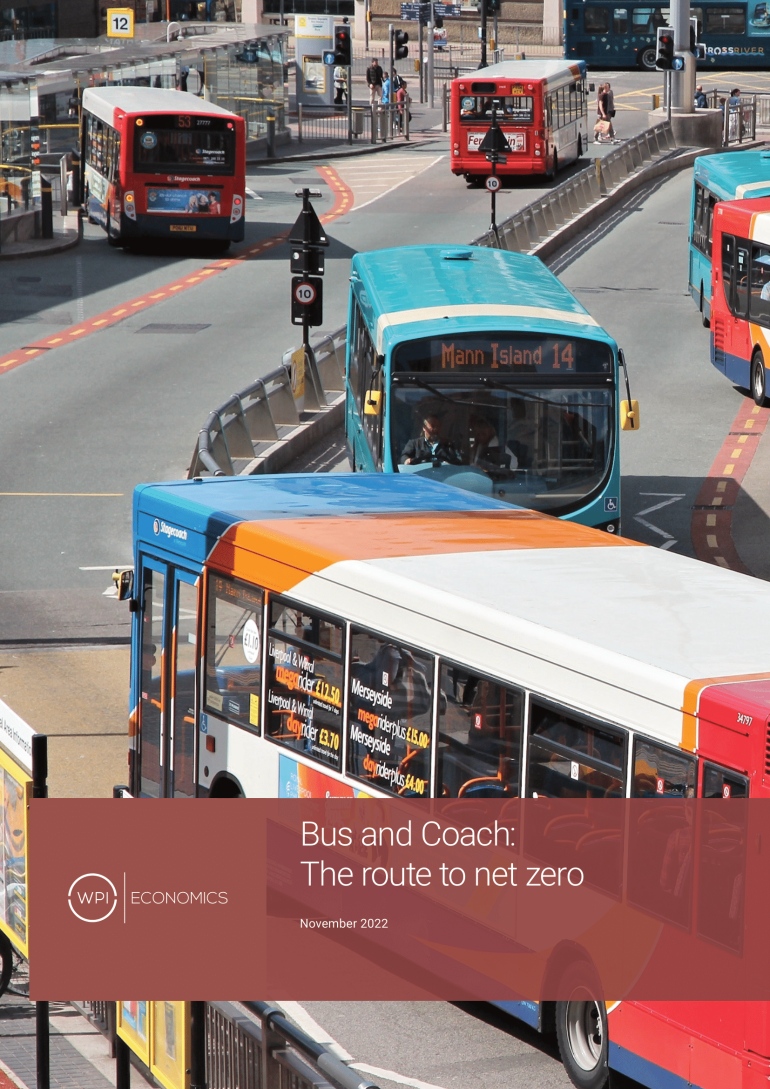
We were commissioned by the Confederation of Passenger Transport, the trade body for the bus and coach industry, to analyse the role that switching car journeys to bus and coach journeys (“modal shift”) may have in achieving the country’s net zero emissions goal. Our first report for this project, The Decarbonisation Dividend, demonstrated that modal shift from car to bus and coach is necessary to support the UK’s Net Zero objectives. The report also demonstrated the scale of modal shift that is needed, and the benefits that would be associated with it. This report, focused on England and accompanied by equivalent reports for Scotland and Wales, summarises the result of the second stage of the project, assessing the different policy options available to produce the scale of modal shift that the previous report identified as necessary to decarbonise the transport sector.
The report argues that a policy package combining investment to increase the attractiveness of bus services, support to make buses cheaper and measures to discourage the use of car are necessary in order to deliver the modal shift that’s necessary without incurring in generalised increases in the costs of motoring that prevent a far transition to Net Zero.
We estimate that a specific set of such policies, including investing £1.1bn in bus services, a long-term £2 cap on single fares, and a the establishment of congestion zones in urban areas, would deliver more than three quarters of the modal shift that’s necessary to decarbonise the UK’s transport system. The modal shift from cars into buses this policy package would lead to would bring about sizeable benefits:
- A reduction in emissions of 10 million tons of CO2 – equivalent to the total transport emissions in the East Midlands in 2019;
- Socio-economic benefits from changes in travel patters worth almost £27bn – equivalent to the total GDP of Leeds in 2019;
- Positive impacts on local labour markets (from expanding the bus network and increasing service frequency), which could result in almost 58,000 additional people in employment, contributing more than £3.6bn to England’s GDP.
You can read the full report here.
